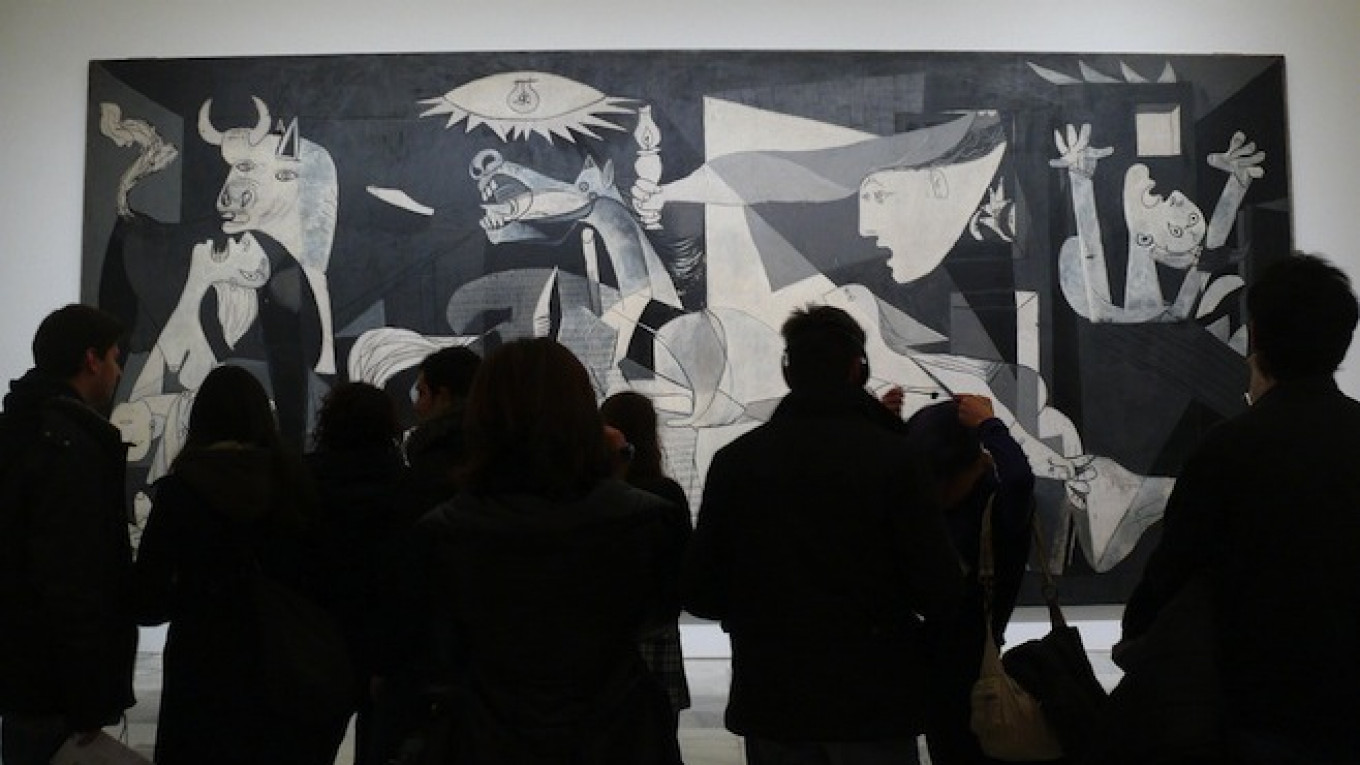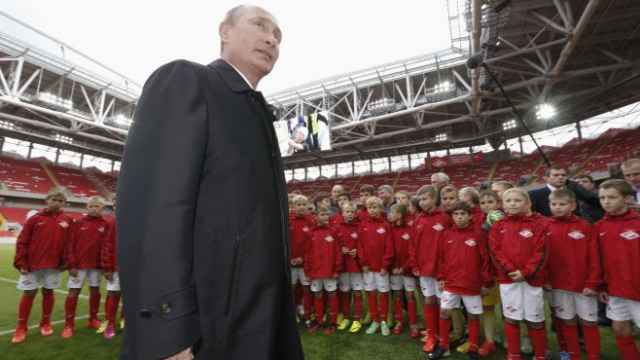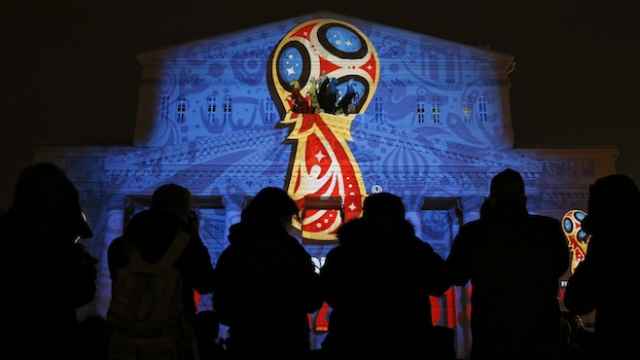UEFA president Michel Platini was allegedly given a Pablo Picasso painting by a member of Russia's World Cup bid team before a vote that awarded the country the right to host the global football tournament in 2018, a British newspaper said.
The Sunday Times newspaper, which has spent four years investigating the bidding processes for the 2018 and 2022 FIFA World Cups, made the accusations in a dossier submitted to a British parliamentary committee and published Saturday.
In the dossier, The Sunday Times alleged that England's Football Association — which lost out on the right to host the 2018 World Cup to Russia — compiled a "database of intelligence [that suggested] serious corruption in the bidding process."
This same database showed "that the Russia 2018 bid team had lobbied for the support of Michel Platini, the UEFA president and voter, by giving him a painting believed to be a Picasso," according to a copy of the dossier published online.
Michel Platini, a former French international who now heads European football's governing body UEFA, voted in favor of Russia hosting the 2018 football tournament when FIFA's executive committee cast ballots back in 2010.
Citing "well-placed informants within Russia," sources alleged that an unspecified painting believed to be a Picasso was given to Platini ahead of the vote by Vyacheslav Koloskov, a member of Russia's 2018 World Cup bid team.
The dossier also quoted a source within the British government as saying "the painting may have come from the vaults of the State Hermitage Museum, which houses numerous works by Picasso."
St. Petersburg's Hermitage Museum hosts some of Picasso's most famous paintings — including the "Guitar and Violin," and the "Absinthe Drinker."
Picasso's paintings are among the most expensive in the world, with one painting "Nude, Green Leaves and Bust," fetching $106.5 million at a Christie's auction in 2010.
No hard evidence for the claims was produced by The Sunday Times, with one source noting: "What you need to remember about this is the way that this was done in Russia is that nothing was written down."
Platini has denied the accusations that he had received a Picasso painting from anyone associated with the Russian bid team, according to the dossier.
A second FIFA executive, Michel D'Hooge from Belgium, was also accused of receiving a painting from Koloskov ahead of the World Cup vote — something he later confirmed to be true. D'Hooge told The Sunday Times that he did not realize the value of the "absolutely ugly" painting's worth and that he had not voted to back Russia's World Cup bid.
The claims are the latest in a series of allegations to have rocked world football's governing body FIFA since its decision to award the 2018 World Cup to Russia and the 2022 World Cup to Qatar.
A two-year report into alleged violations in the bidding processes for the 2018 and 2022 World Cups recently lead FIFA's ethics body to declare that both bids were fair.
But lawyer Michael Garcia, whose report formed the basis of the ethic council's decision, said a day after that announcement that his findings had been misrepresented.
A Message from The Moscow Times:
Dear readers,
We are facing unprecedented challenges. Russia's Prosecutor General's Office has designated The Moscow Times as an "undesirable" organization, criminalizing our work and putting our staff at risk of prosecution. This follows our earlier unjust labeling as a "foreign agent."
These actions are direct attempts to silence independent journalism in Russia. The authorities claim our work "discredits the decisions of the Russian leadership." We see things differently: we strive to provide accurate, unbiased reporting on Russia.
We, the journalists of The Moscow Times, refuse to be silenced. But to continue our work, we need your help.
Your support, no matter how small, makes a world of difference. If you can, please support us monthly starting from just $2. It's quick to set up, and every contribution makes a significant impact.
By supporting The Moscow Times, you're defending open, independent journalism in the face of repression. Thank you for standing with us.
Remind me later.






